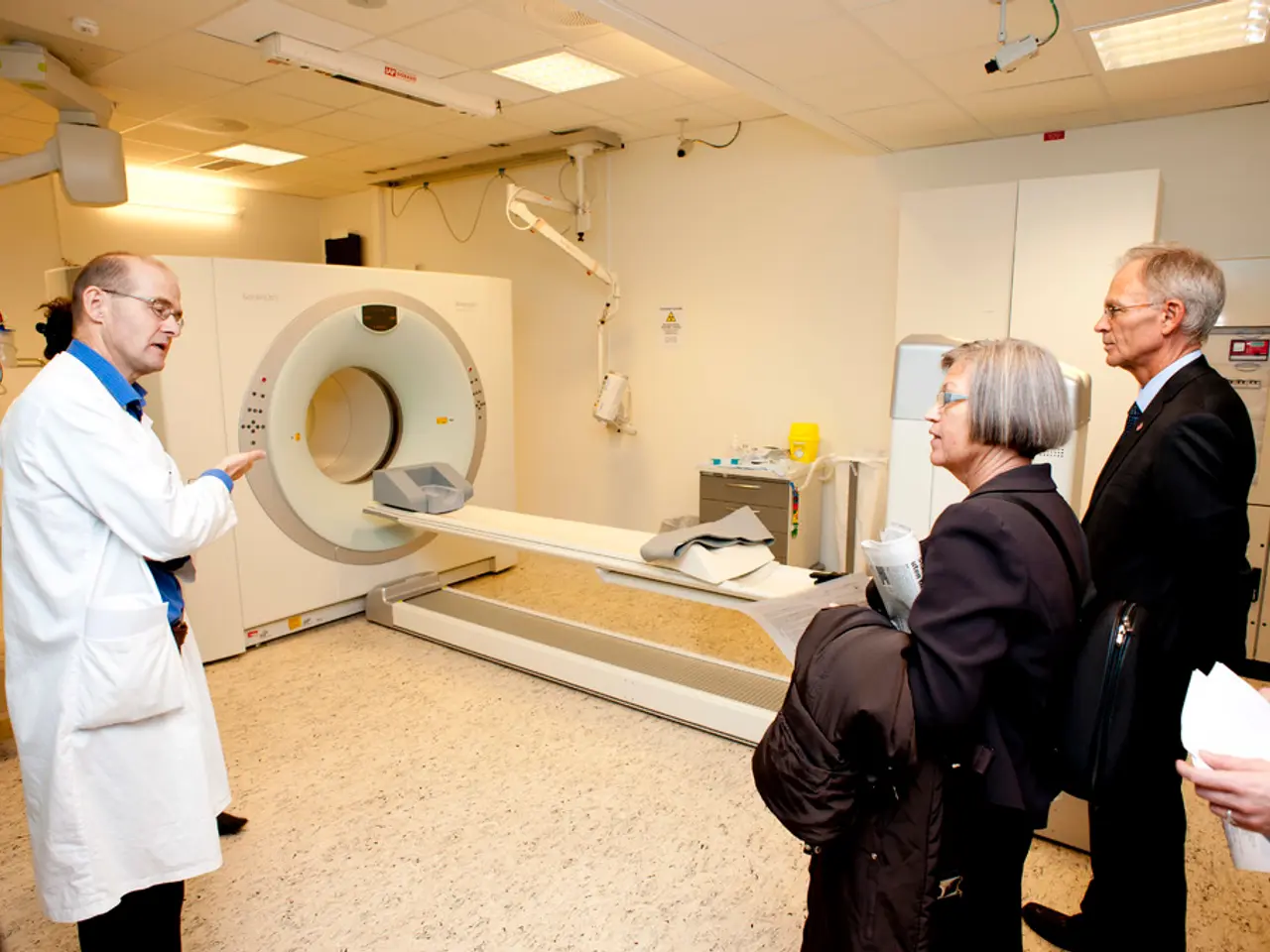Recognition posthumously given to Bernhard von Gudden, psychiatrist of King Ludwig II: Explanation Behind the Plaque Honour
Remembering Bernhard von Gudden: The Man Behind King Ludwig II's Fate
In the tranquil waters of Starnberg See,three memorials stand, reminding us of King Ludwig II who met his end there on June 13, 1886. Yet, until recently, there was no nod to his psychiatrist, Bernhard von Gudden, who perished alongside him. The Wittelsbach family, in a striking gesture, has rectified this by installing a memorial plaque for the enigmatic 'nerve doctor'. This recognition aims to shed light on a figure often shrouded in controversy.
On that eerie evening, von Gudden and Ludwig II ventured out alone. The Director of the Upper Bavarian Mental Asylum was tasked with evaluating the king's mental health, as his extravagant castle-building had put a strain on the state's finances. Von Gudden concluded the king was afflicted with paranoia, leading to his imprisonment. At 4 AM on June 13, 1886, they embarked on a fateful coach ride from Schloss Neuschwanstein to Berg am Starnberger See. Upon arrival, they took a walk with the guards. One more walk was requested by Ludwig II later in the day, and von Gudden instructed the guards not to follow.
Both were later found dead in the lake. Ludwig II's pocket watch had stopped at 6:53 PM, von Gudden's at 8:06 PM. Their death left a mystery, with rumors swirling about foul play.
Last year, a cross appeared for von Gudden beside Ludwig II's, triggering the idea to honor the psychiatrist. Stephan Freiherr von Warsberg, president of the administration of the Duke of Bavaria, shares that this decision was made with the Gudden family.
Art historian Marcus Spangenberg, a specialist in Ludwig II, comments that remembering both figures is justified. While it's probable that Ludwig II, in an unusual situation, might have taken von Gudden's life, Spangenberg adds that von Gudden's report lacked credibility, as it was based on no thorough examination of the patient.
The Gudden family seems grateful for the long-overdue recognition. Wolfgang Gudden, a descendant and psychiatrist from Freising, states, "The plaque should commemorate a great and deserving man who died young." In his time, he was one of Germany's most distinguished psychiatrists.
The plaque reads: "Professor Bernhard von Gudden. Royal Chief Medical Officer. Director of the Bavarian Mental Asylum. Recipient of the Order of Merit of the Bavarian Crown. Pioneer of non-violent and respectful patient treatment."
Echoes from the Past:
Born on June 7, 1824, Bernhard von Gudden was a German neuroanatomist and psychiatrist. Although his significant contributions to psychiatry may not be widely recognized, his relationship with King Ludwig II of Bavaria is an intriguing part of history. Von Gudden played a crucial role in the psychiatric evaluation of King Ludwig II, leading to his declaration of insanity and eventual removal from power in 1886. These events culminated in the tragic and mysterious deaths of both King Ludwig II and von Gudden, who were found drowned in Lake Starnberg under suspicious circumstances.
Von Gudden's work in psychiatry during his time would have been part of the broader psychiatric practices of the late 19th century, which focused on assessing and treating mental health issues based on the available methods. However, specific contributions to psychiatric theory or practice attributed to him are not well-documented in available sources. His role in the life of King Ludwig II remains his most noted historical contribution.
In light of Bernhard von Gudden's significant involvement in the mental health evaluation of King Ludwig II, it is crucial to recognize his contributions beyond his relationship with the monarch. His pioneering therapies and treatments, particularly in the field of mental health, should be highlighted and celebrated.
Moreover, von Gudden's work in health-and-wellness, specifically mental health, was a critical part of the broader scientific advancements in the late 19th century. His innovative approaches to patient care,, which emphasized non-violent and respectful treatments, were steps towards the improvement of science and mental health care.




